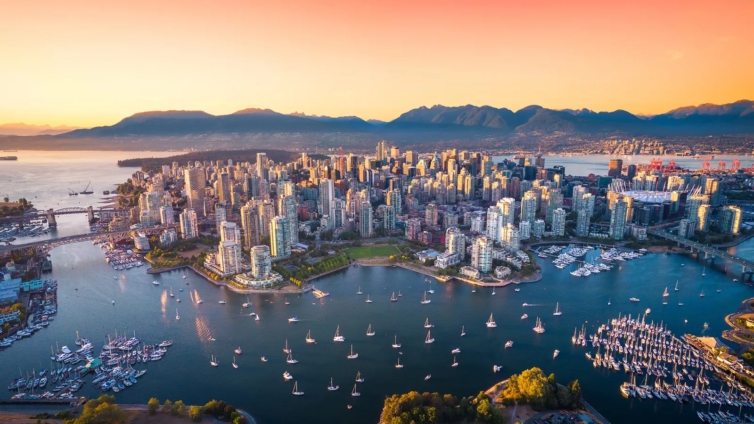While European and Scandinavian destinations frequently find themselves atop world indexes – like the world's healthiest countries, or best countries for raising children – Canada has quietly been marching up the ranks as a country to contend with. That's been especially apparent in the latest Most Liveable Cities index, conducted by the Economist Intelligence Unit, which named three of Canada's cities in the top 10, more than any other country represented.
The top three Canadian cities on the list included Vancouver (ranked 5th), Calgary (tied 7th with Geneva) and Toronto (ranked 9th), each with perfect healthcare and education scores. Those factors appeal to Canadians, who praise positive governmental policies that improve quality of life there.
"Our progressive politics and universal healthcare make Canada a wonderful place to live," said Vancouver resident Samantha Falk. "I cannot imagine living in a country where I have to worry about being able to afford to see a doctor or take my child to the hospital, or risk bankruptcy by having cancer."
This sense of care extends beyond politicians, leading to a feeling of community that improves liveability both at work and home. "Lending a hand at schools [to] supporting seniors to uplifting business owners, Canadians are known for their friendly and supportive nature," said Jane Stoller, Vancouver resident and founder of Organized Jane, a life-business organising service. "This sense of camaraderie fosters a positive environment where individuals can thrive and find fulfillment in both their personal and professional lives."
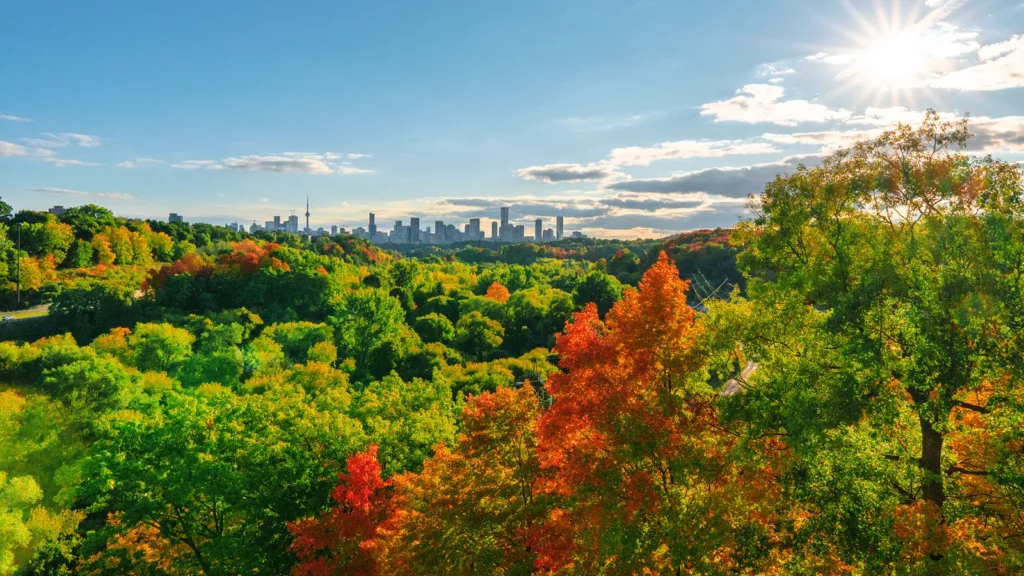
Canada's investment in public transportation and transit systems also makes navigating its big cities easier. Falk, who has also lived in Montreal, Calgary and Toronto, didn't get her driver's licence until she was 24, and a friend of hers is finally getting his at 53, simply because they haven't needed a car to get around.
However, what residents love most is the strong connection that the nation has to the outdoors. "All three [of the most liveable] cities – like so many cities in Canada – are located close to nature, and have also incorporated it into their city design," said Falk. "There's the ravine system and the beaches in Toronto; Mont Royal and tree-lined streets in Montreal; and Vancouver has Stanley Park, one of the world's best examples of urban nature." But even outside the big cities, the focus on nature remains a prominent feature, mirroring the importance of the wilderness to residents. "We are outdoor people!" Falk said.
Spread across the world's second-largest country (by landmass), each of the three Canadian cities has its own unique appeal. We talked to residents in each place to find out what keeps them living in and loving their respective cities.
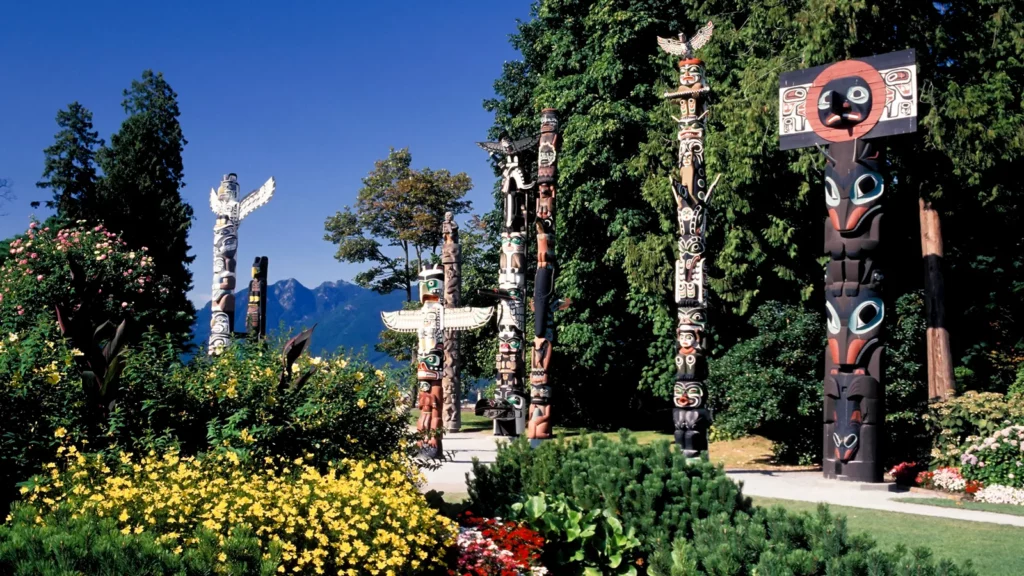
Vancouver
Located on the country's scenic west coast, Vancouver inched out as Canada's most liveable city thanks to sky-high scores in the culture and environment subindex, outranked only by Auckland in the top 10. That's a sentiment that residents echo, who are blown away by the natural beauty here.
"Vancouver's unique and gorgeous combination of mountains and ocean makes it irresistible," said Falk, who runs her eponymous communications firm out of the city. "Even after 20 years living in Vancouver, the city still takes my breath away."
To get the most out of the city and feel at home here, she says you must get outside – even (and especially) when it's raining. One easy place to do that is Stanley Park, a 405-hectare public park in the city centre that has a coastal rainforest with centuries-old trees, including the still-standing stump of a 700-800-year-old red cedar called the Hollow Tree.
For the truly hardcore, she recommends hiking the 2.9km Grouse Grind trail up the face of Grouse Mountain. "Often referred to as nature's 'stairmaster', the trail will make you feel like throwing up, but the payoff at the top is well worth it," she said. "Have a coffee or a glass of wine at the mountain-top restaurant and soak in the view – and take the gondola down."
For those that prefer calmer adventures, the food scene is one that's hard to beat. "From fancy restaurants to cool food trucks and farmers' markets, you'll never run out of tasty treats," said Stoller. Residents especially rave about Vancouver's sushi, which she says is the best and cheapest selection of sushi restaurants outside Japan.
The city also fosters an entrepreneurial and collaborative mindset that creates a welcoming sense of home. "Vancouver people are open-minded, diverse and love coming together for arts, tech or green initiatives," said Stoller. She also says the small geographical footprint keeps the city organised and creative. "You won't find as many big-box stores here, which promotes shopping local and supporting the community," she said. "It's a win-win for everyone."
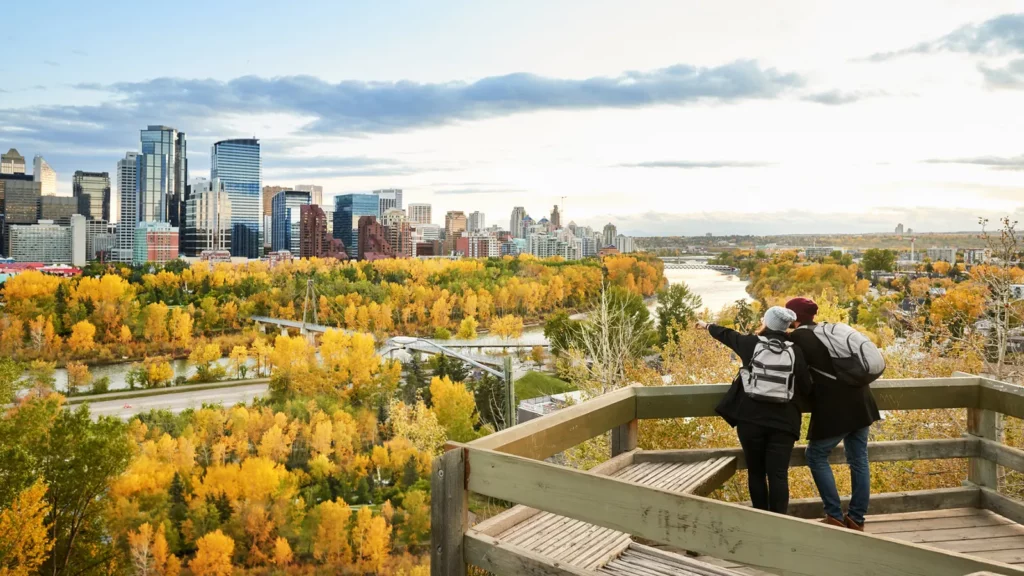
Calgary
Situated near the Rocky Mountains in the western province of Alberta, Calgary outscored the other two Canadian cities with its perfect stability result in the index (a measure of civil unrest and government corruption). Residents describe Calgary as having a small-town feel with big-city amenities, while also having a lower cost of living than Canada's other comparable cities.
"Despite being one of the largest cities in Canada, Calgary manages to retain a unique charm, one that comes from friendly locals, a community-oriented mindset and neighbourhood-centric farmers' markets," said resident and travel blogger Lora Pope. "Yet it doesn't lack when it comes to trendy eateries, cultural festivals and amazing nightlife." The city is also diverse – the third-most diverse in Canada with more than 240 ethnic origins and 165 languages.
The city also has a lucrative oil and gas industry, a large white-collar business community and an affordable cost of living. "Calgarians have money and love to spend it," said Jessie P Cayabo, a communications professional who moved to the city from Edmonton three years ago. That means the walkable downtown and surrounding areas are packed during the summer months, while hockey season sees suits and ties swapped for Calgary Flames jerseys, she explained. The annual Calgary Stampede (which starts the first Friday of July) serves as a 10-day party and rodeo where everyone wears western gear and the festival welcomes people from all over the world.
"People go out. Patios are packed and restaurants are busy," echoed resident Shannon Hughes, owner of Calgary-based Captivate Benefits advisory firm. She suggests booking a spot at Major Tom restaurant at sunset to truly appreciate the city's mountain views.
Like much of Canada, the ease of access to nature improves the quality of life here. Calgary has the most extensive paved pathway and bikeway network in North America, with more than 1,000km of paths for walkers and cyclists. "My bike rides along these paths have led me to discover some of the city's hidden gems, provided spectacular views and given me a daily dose of the outdoors that I crave," said Pope.
Even in winter, the city has no shortage of activities, from skiing, skating, tubing, snowshoeing and even ice biking, with much of the infrastructure still in place from when the city hosted the 1988 Winter Olympics. Residents do say the winters are long and cold, so expats coming from warmer climates should invest in some good quality winter gear.
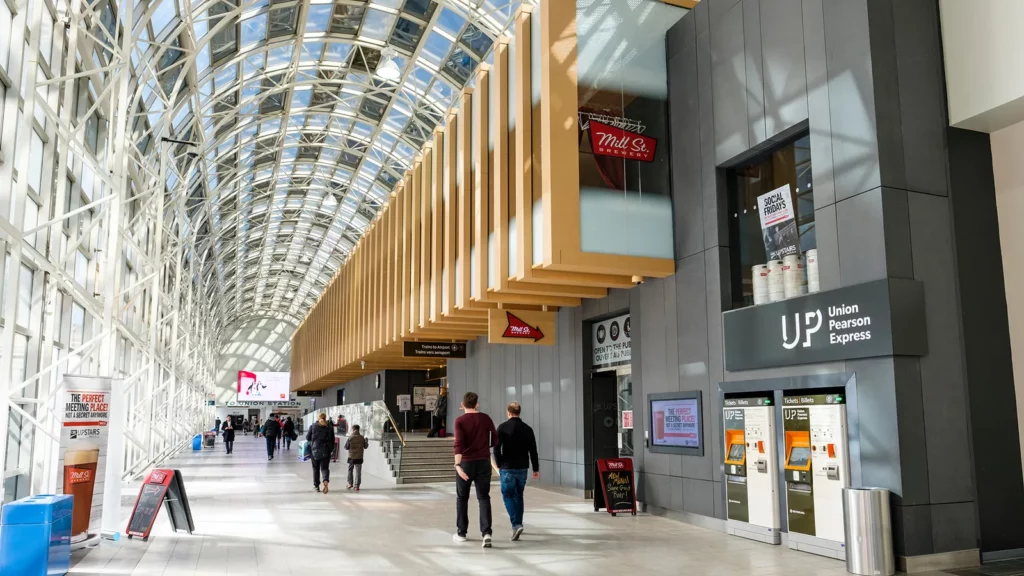
Toronto
As Canada's most populous city, Toronto combines big-city vibes with more than 1,500 parks that keep residents connected to the outdoors. With a perfect score in the stability sub-ranking, Toronto maintains a sense of safety that lets people feel comfortable whether they're walking, taking public transport or cycling.
In particular, the human-centred infrastructure means that life is much easier than in comparable big cities. Residents especially rave about the PATH, the underground pedestrian walkway that makes the Canadian winter more bearable. "From my office to the airport [train], dining, shopping and even doctor appointments, everything [is] conveniently accessible without the need for a winter coat," said resident Hoang Anh Le, who blogs at Luxury under Budget.
Resident Kyra Marskell agrees, saying while the Toronto Transit Commission (TTC) isn't without its flaws, having integrated transit options – most of which come within four minutes – makes a world of difference when coming from a suburb where driving is the only option. "We also have rental bikes all around the city which is a great green-friendly commuting option I've recently enjoyed," she added.
The city is also known for its diversity, with more than 51% of its residents born outside of Canada. "It's the only major Western city where the visible [non-white] minority is the majority," said Marcus Räder, CEO and co-founder at software company Hostaway. "There are chances to experience a lot of cultures and languages here, and Canada embraces multiculturality rather than pushing for assimilation." This cultural diversity enriches the community through a variety of festivals, cuisines at every price point and a respect for sharing new ideas and ways of living.
An entrepreneurial spirit also influences Toronto, from big business (Uber, Google and Facebook all have offices here) to new start-ups. In recent years, the city has become North America's third-largest tech hub, just behind New York City and Silicon Valley. When paired with city's diverse community, the tech scene creates great exposure to people from different cultures and backgrounds, say residents.
"It's interesting getting to learn cultural habits in relation to people's work and personal lives," said Jonathan Azouri, CEO and co-founder of CatchCorner, an app to book sports facilities. "It's almost as if you gain a sense of international work life experience without needing to leave the city."
Latest Stories
-
SML/GRA contract: OSP should have released its report by now – Inusah Fuseini
25 mins -
KPMG report exonerates us – SML
33 mins -
Works and Housing Ministry seeks lasting solutions to challenges with stakeholders engagement
42 mins -
President’s statement on GRA-SML contract underlines Fourth Estate’s revelation – MFWA
46 mins -
Director urges parents to protect children from abuse
1 hour -
Imani-Ghana criticises Akufo-Addo for not lauding Fourth Estate’s contribution to social development
2 hours -
Man remanded for allegedly stabbing businessman with broken bottle and screwdriver
2 hours -
Population in Kumasi Central Prison surges to 1800, threefold exceeding capacity
2 hours -
NPP to conduct La Dadekotopon parliamentary primary today
2 hours -
KPMG’s report on GRA and SML deal, government white paper on report and matters arising
2 hours -
I won’t reply to Chris Brown tour criticism – Ayra Star
2 hours -
British Columbia to back off drug decriminalisation project
2 hours -
Veteran commentator Joe Lartey Sr dies at 96
2 hours -
Livestream: Newsfile discusses KPMG report on SML deal, ILO on SSNIT reserves and NDC’s running mate
3 hours -
Ghanaian activist hugs over 1,100 trees in an hour to set Guinness World Records
3 hours

